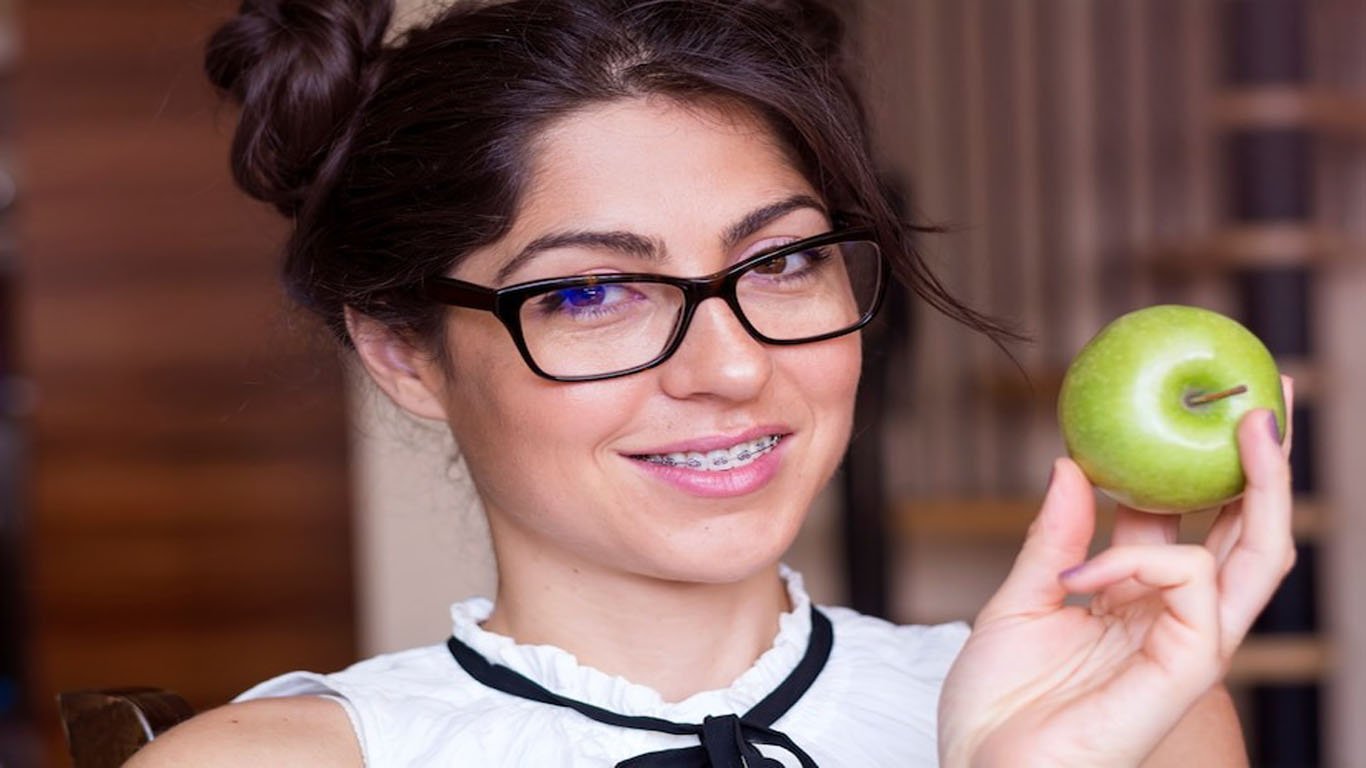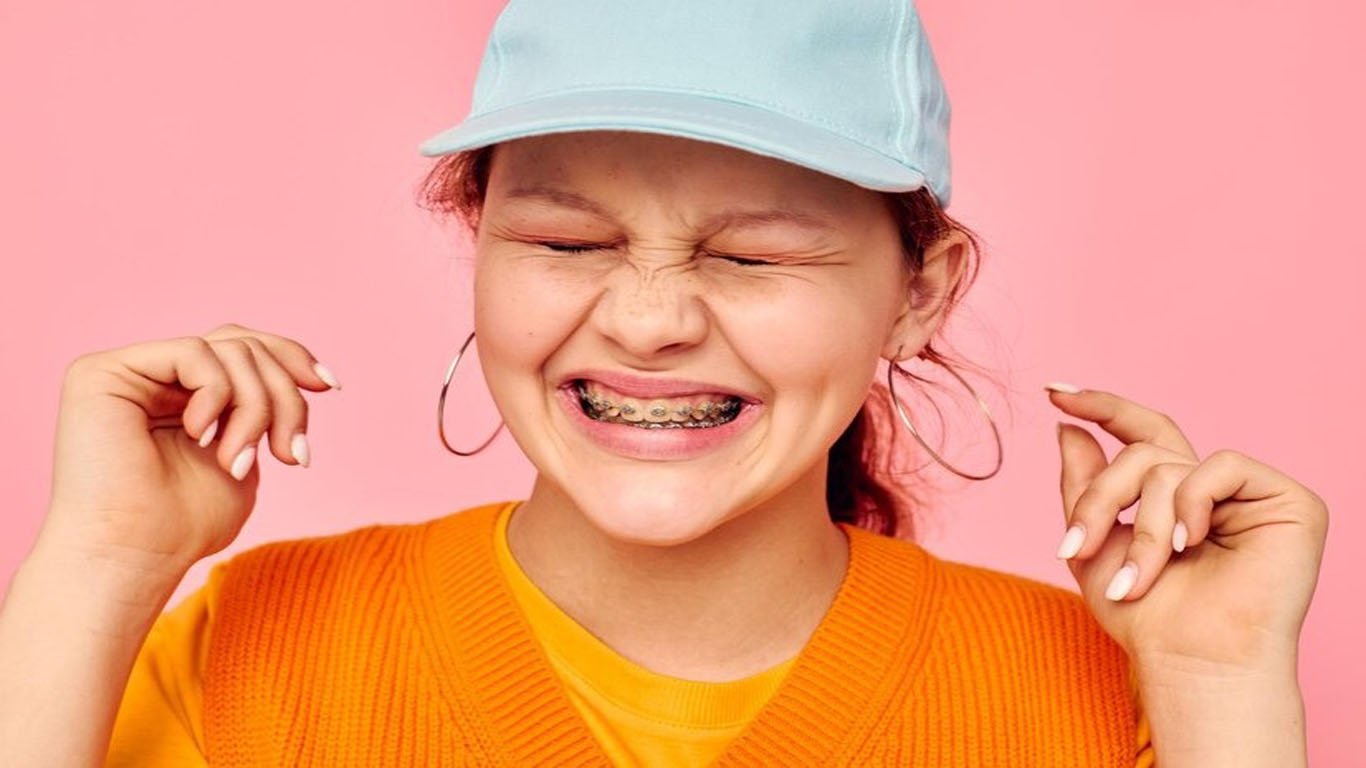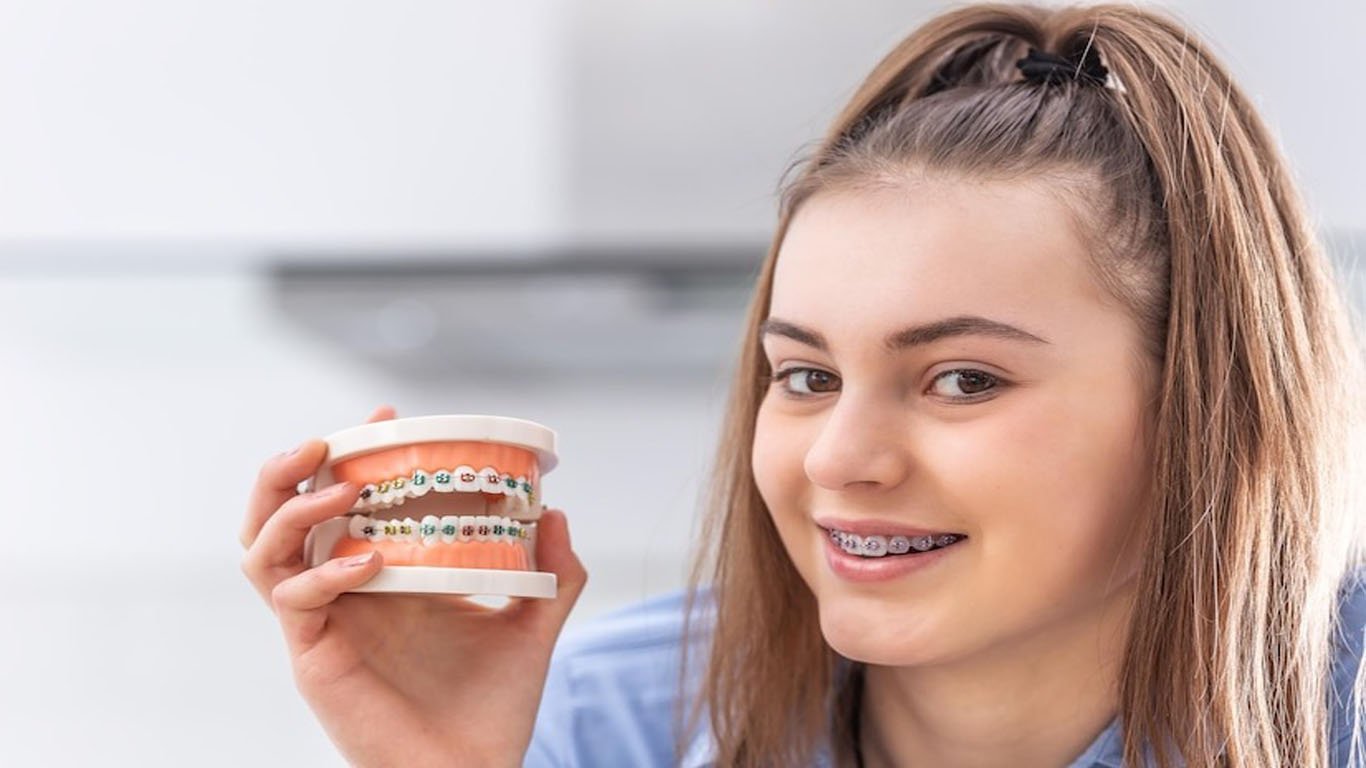Tips for Eating with Braces
Eating with braces can sometimes be annoying, especially during those big holiday feasts that require a lot of mouth action. When you get braces, you may start to notice your teeth don’t touch the way they use to, which can change the way you chew. Throughout your treatment, your teeth may shift and you will need to adapt to biting and chewing in a slightly different way but don’t worry, eating won’t be a challenge for long. In most cases, people find their rhythm, and chew comfortably and properly, within 2-3 weeks of their braces being put on!
Tips to Make Eating With Braces an Easier Transition:
- Take your time. Chew slowly and cut your food into smaller pieces than usual.
- Soft foods are your best friends. Eventually, steak will be your go-to again, but for the first couple weeks, it may be best to focus on eating softer foods.
- Try your best to avoid stringy foods. I know fettuccine alfredo and spaghetti are your faves, so try to cut the noodles into smaller pieces or you may end up with noodles wrapped around your brackets; which means more cleaning for you. Don’t forget about those foods that get stringy when they melt, like delicious mozzarella cheese (I know that one will be hard to stay away from, so just be ready to clean those braces).
- You might want to take a break from nuts and seeds, they can get stuck in your braces and drive you crazy. But don’t worry, there is always a solution: brush brush brush.
- Try to bite/chew with the side of your mouth. It may seem hard at first, but you’ll get use to it and your teeth will thank you!
- Always treat yourself to something cold. Ice cream, popsicles, slushes, etc., are your best friends too!
- Keep your flossing brush with you, wherever you go. You never know when it will come in handy!
- Don’t worry; you can always enjoy all your favourites, you’ll just want to take your time and be a little more caution than normal.
Remember that it will all be worth it; after those braces come off and you have your dream smile!

Here are some foods you and your braces will love:
- applesauce
- macaroni and cheese
- pancakes
- soft bread
- mashed bananas
- cooked veggies
- hummus
- canned or cooked fruit
- scrambled eggs
- oatmeal
- soup with soft vegetables or pureed or cream soups
- soft cheeses, including cottage cheese
- smoothies and milkshakes
- pudding
- meatloaf
- tofu
- ripe fruits, such as peaches and nectarines, cut into bite-size pieces
- couscous, quinoa, soft-cooked rice
- pasta and noodles (cut up into smaller pieces)
- baked apples
- peanut butter
- chicken or tuna salad
- refried beans
- mashed potatoes
- sorbet and frozen yogurt
- tortillas (soften by microwaving or steaming)
- yogurt
- soft-cooked, shredded chicken and meat
- protein shakes

What You Can Eat When First Get Braces?
Contrary to popular belief, getting braces doesn’t hurt at all. However, you may experience some sensitivity in your mouth for the first few days following your appointment, which can last up to a week. To alleviate discomfort, it’s better to avoid certain foods that have hard textures and stick to soft foods, such as mashed potato, yogurt, oatmeal, grains, soups, seafood, pasta, and anything that’s easy to chew.
In other words, you must steer clear of these foods right after getting braces:
- ice cream
- spicy foods
- thicker cuts of meat
- citrus foods
- thick rolls or slices of thick bread, etc.
It’s a piece of good advice to avoid sugary foods and drinks while getting braces. These foods and drinks not only increase the risk of tooth decay and gum disease down the road, but they also mix with salvia to create a sticky film (plaque) that coats the teeth, which is difficult to remove. Remember that brushing the teeth can remove plaque, but it becomes more challenging when you have braces.
So, while an occasional sweet treat can’t cause a problem, limit yourself to very few sugary foods and drinks.
Why Are Dietary Changes Needed with Braces?
A few changes in your diet while having braces can lead to an effective result. Choosing braces-friendly foods can help prevent damage to your braces. The following tips explain why this is important:
To protect braces from damage
Undoubtedly, you can’t eat certain foods while you’re getting braces, as they increase the risk of braces being broken or loosen. If this issue happens to you, be sure to schedule an appointment with your orthodontist to fix the problem promptly.
To prevent discomfort after adjusting the brace
One or two days after adjusting the braces, your mouth will probably be sore and sensitive. Due to that, you’ll need to stick to soft foods that don’t need to bite down or chew.
Regular, braces-friendly diet
Avoid consuming foods and drinks with high levels of sugar while wearing braces. When sugar mixes with saliva, creating plaque over the teeth, making it difficult to remove with even brushing and flossing.

To reduce the risk of stained teeth
Keeping in mind that brushing your teeth immediately after consuming foods and drinks with high levels of sugar to avoid staining. If left untreated, creating uneven staining, with the areas around the brocket unstained and the rest of your tooth becoming discolored. This can have an adverse effect on the appearance of your smile and the overall your face.
To change chewing technique
Avoid biting into hard foods while wearing braces. Instead, cut them into smaller pieces and chew them with the stronger back teeth to prevent damage or loosening of the braces
What We Should DO If Our Wires or Bands on Braces Become Loose?
During the time you have the braces, you need periodic appointments with your orthodontist to adjust your braces.
Losing a bracket or broken wire or band is a common issue that may occur between regular adjustments. This may happen if you do:
- Have trauma in your mouth
- Eat hard, sticky foods, etc.
Keeping in mind that if you have an issue with your braces, make an appointment with your orthodontist as soon as possible, as ignoring the damage can easily lead to prolonging your treatment and may even impact the result.
If you experience a broken wire or bracket, avoid pulling or bending a broken one, as this can cause further damage. Instead, cover a sharp edge with an orthodontic wax until you can see your orthodontist.
Maintaining Good Oral Health While Getting Braces
Maintaining good oral health especially when you’re getting braces is an effective way to steer clear away from tooth damage and gum disease. Brush your teeth at least three times a day and floss at least twice a day, preferably after each meal. When brushing your teeth, use a soft-bristled toothbrush.
To maintain good oral health while getting braces, pay extra attention to the space around the braces and remove all food debris, using a floss threader along with your regular flossing routine. In addition, we suggest using a fluoride mouthwash to strengthen your teeth and reduce the likelihood of tooth decay.
Another crucial point is to take your appointment with your orthodontist seriously, as it is the best way to track your dental improvements and ensure you the best possible result.
FAQ
What foods are banned with braces?
Foods you can’t eat with braces include:
- Nuts.
- corn on the cob
- Gum (but sugared-free gums are ok)
- Potato chips.
- crunchy veggies
- Hard candies such as jolly rancher or lollipops
- Sticky candies such as laffty-taffy or gummy bears
What can you not drink with braces?
Takeaway
If you ever have any questions about the best or worst foods to eat, or you want some more tips, don’t hesitate to call York Orthodontics; Dr. Nima Mir and his team are here to help you!
